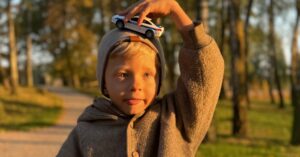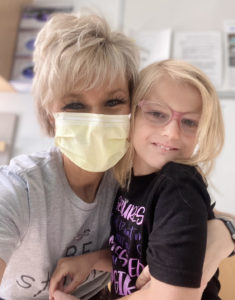Adam
Share This Post
Our journey began on November 23, 1991 when our son, Adam, was born. His entrance into our world was not easy. He was very unsettled from birth, crying almost constantly and having difficulty breastfeeding. Various opinions were given but most suggested colic. We were struggling greatly in those early weeks. At eight weeks old, I noticed he wasn’t responding to me like other babies of the same age at the clinic. Adam also had a squint.
At the age of three months, when we started to try to wean Adam, life became very difficult for us all. He had already struggled to drink from his bottle and I had to record daily the small, frequent amounts he had drunk. I still have this diary. We initiated investigation into his feeding difficulties. At the age of six months, we were called into the hospital to hear about all the test results. In the meantime, we realized Adam’s development seemed slow but weren’t overly concerned. As a teacher I just believed Adam, our first born, was slow but would get there eventually.
We were absolutely mortified to be told that Adam was brain damaged and would never walk, talk or play football. It was a complete bombshell, delivered to us in a tiny cupboard-like room as the consultant’s office was unavailable. We drove home distraught to deliver the horrific news to grandparents who were babysitting Adam for us. We all broke down in tears. I’ll never forget that moment.
We were not given a diagnosis and our precious son was labeled with “global developmental delay.” We were told that Adam was blind, a diagnosis we refused to believe. We spent the next couple of years searching for answers. We had genetic counseling when Adam was two-years old which led nowhere. We were told the chances of having another baby with similar problems could be very high. Little did they know but we were already expecting our second child, who became our other very much-loved baby and the perfect sister for Adam. She was born easily and had no developmental difficulties. She soon overtook Adam in what she could do which was a mixed blessing in a way, as we yearned for Adam to be able to do the same.
After traveling abroad in search of answers, as far as the United States and Switzerland, we resigned ourselves to not knowing what Adam’s diagnosis was nor his prognosis. This felt almost like a relief at the time. We just hoped and prayed he would reach his own potential in his own time. Kate was 22 months younger than Adam and we decided to live as “normal” a family life as possible for all our sakes.
Adam started at special school at the age of 22 months, two months before the normal starting age, as I was expecting our daughter at that time so he was taken on early. It was so, so difficult sending him off on transport when he was still so little. I cried every day for months. However, we grew to love his school where he remained until the age of 18. Adam received all his therapies within the school. He made some progress but left still unable to sit or walk independently, to communicate verbally and still entirely dependent on us for all his needs. He was also still very much mentally disabled.
Family life had always been a priority as we wanted our daughter to have as “normal” a life as possible. However, looking back now she missed out on many things. I always wanted to take her to Disney World but we couldn’t as Adam never flew well. As a little girl she would often want to pop into McDonald’s for a burger but I couldn’t as Adam couldn’t chew nor would he tolerate the environment. If we did go, it had to be planned and I would have to have puréed food ready in my bag for him, but he was so unpredictable it wasn’t worth the stress of the visit. I could list endless things which were extremely difficult to do but we tried our best. We still do.
Throughout these years we couldn’t have loved Adam more. He gave us so much pleasure. Both our children were loved equally and gave us so much in so many different ways. From the age of 18 to 21 Adam attended a special needs college. It was brilliant. Again, he had all his therapies there. This place was a 9am to 3pm day like his previous school. Term time only. Progress was again made in tiny steps but any step was so much appreciated. After this college, Adam entered Adult Social Care leaving the safety of the Education system. Life then became a battlefield.
The services on offer in our area were poor and did not meet Adam’s complex needs. We fought for a place at a super day service out of area which we got. At this centre he swims twice weekly, does rebound therapy once a week and had hydrotherapy initially until they decided it wasn’t to Adam’s liking! The centre has a small farm, coffee shop and staff take the day service users out in a minibus to local places and into the community. Sadly, this place has been suspended since March due to Covid 19.
We started to use overnight respite when Adam was 20. This has always been, and will always be, very hard for me. As Adam cannot communicate his needs and thoughts, it is extremely difficult to release him to others. However, we have now found a place which works for us although it still hurts me to leave him. Nobody can care for him as we do. I feel very guilty but I know we all need the break from each other.
The search for a diagnosis recommenced when Adam was around age 22. I was concerned about the chance of Kate ever having a child with Adam’s needs should she ever choose to have her own family. To cut a long story short I went to our GP to ask what could be done. She advised us to go back for genetic counselling as it had advanced hugely since we last tried it when Adam was just two-years old. So, the quest began again. It was short lived as again nothing was conclusive. However, we were invited to join the DDD research programme, which we did. We were told we would probably never hear from them but then miraculously we received a letter when Adam was 25 informing us of his GRIN2B diagnosis. We were stunned! After all the years of not knowing it was a shock, to say the least. The best news was Adam’s diagnosis was ‘de novo’ meaning our daughter would be able to conceive a baby without GRIN2B. As much as we love Adam, we would not like Kate to lead the life we have as it is hard. Very tough at times but the joys do far outweigh the struggles! Adam is heaven sent. We feel privileged to have been chosen as his parents.
Looking ahead we are told we can’t look after Adam forever. This is heartbreaking and the most depressing thought we both have. I can’t yet face the future. I know we need to as I know our daughter also worries about this and I want her to live as “normal” a life as possible and not to ever feel responsible for her brother, even though she adores him.
So, for the time being we will follow the same path. We are learning more and more about GRIN2B (such an appropriately named diagnosis for our smiley chap!) and are currently pushing for an L-serine trial. We will do anything we can to help Adam have the best quality life he can have. He deserves this chance. We now have a neurologist back on board but Covid-19 has temporarily stopped our pursuit. It has also temporarily robbed us of respite and day services and Lord knows when/if we will return to the old normal. Here’s hoping…..
Read more Posts

Leon
I have trouble with speaking—words don’t come out of my mouth easily. But I try my best! My mum patiently repeats everything for me, speaking loudly and clearly. Everyone keeps telling me that I’m amazing and that they love me so much.

Brielle
My name is Brielle Anderson. I was born in 2013, when researchers found the deletion of the 16th chromosome called GRIN2A.
